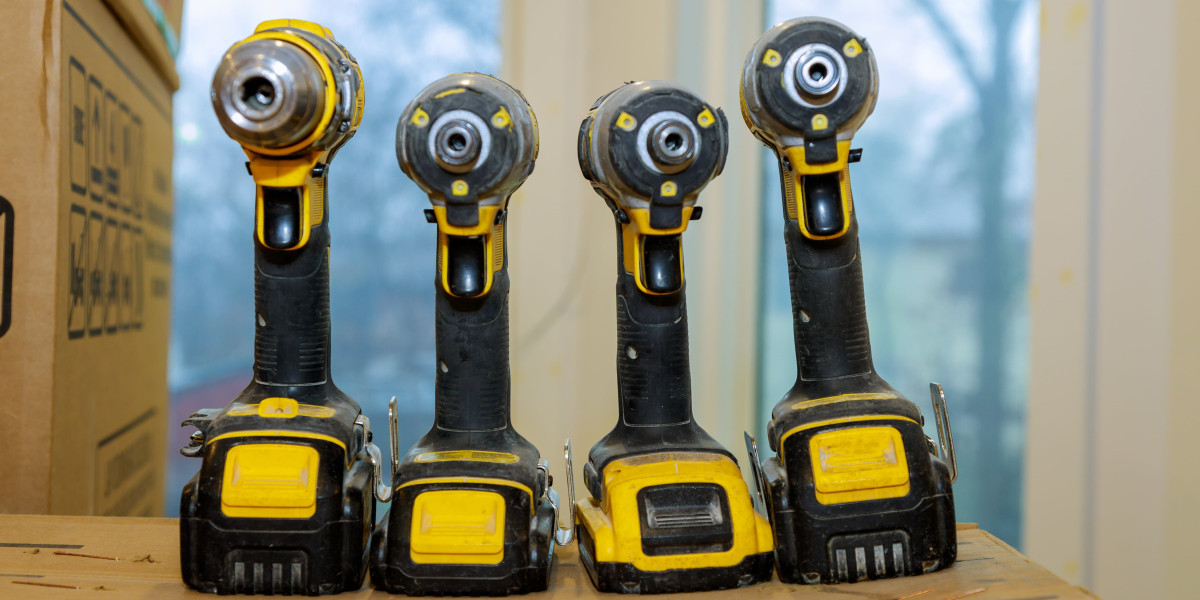The Hand Drill: A Timeless Tool in Modern DIY
In the broad selection of tools available to DIY lovers, the hand drill inhabits a treasured area. This manual tool has transcended the ages, transforming from a primitive gadget into a more refined version that continues to play an important role in both professional and amateur projects. Whether crafting furniture, embellishing a home, or akkubohrmaschine undertaking repairs, the hand drill remains an important instrument. This post will delve into the history, functionality, types, and benefits of hand drills, alongside some regularly asked questions.
The History of Hand Drills
The story of the hand drill can be traced back to ancient civilizations. Early hand drills were basic gadgets typically made from wood. Gradually, their design progressed, with considerable improvements being made in products and technology. Here's a short summary:
| Year | Turning point | Description |
|---|---|---|
| 3000 BC | First Wheel and Axle | The invention of the wheel enabled more effective drilling techniques. |
| 1000 ADVERTISEMENT | Bow Drill | The bow drill, powered by a bowstring, Elektrowerkzeug offered greater efficiency than previous approaches. |
| 1800s | Push Drill | The intro of metal tools enhanced sturdiness and reliability. |
| 20th Century | Modern Hand Drill Variations | Hand drills diversified into various styles, including the spiral hand drill and the brace and bit. |
Various Types of Hand Drills
Hand drills are categorized based on their design and particular desired use. They can range from simple, low-cost designs to more advanced variations with additional functions. Below are some typical kinds of hand drills:
| Type | Description | Best For |
|---|---|---|
| Standard Hand Drill | An easy, straight drill fitted with a chuck to hold the bit. | General usage for various products. |
| Brace and Bit | A crank-operated tool for drilling larger holes, often used in woodworking. | Woodworking and bohrmaschine (Open-isa.org) producing bigger boreholes. |
| Press Drill | A lightweight, manually operated tool created for faster drilling with minimal effort. | Light-duty jobs requiring accuracy. |
| Pin Vise | A small handheld device that holds smaller drill bits, particularly intended for precision work in miniatures and models. | Design making, fashion jewelry development, akkubohrmaschine kaufen and electronics. |
Advantages of Using Hand Drills
Though electric drills have actually become the standard for lots of, hand drills offer special benefits that are often overlooked. Here are a few of the crucial benefits of using hand drills:
Precision and Control: Hand drills permit a greater degree of control than power drills, making them particularly helpful for complex tasks.
Simplicity: There are no battery failures or power supply concerns with hand drills. Beginners can learn to use them more quickly than their electronic equivalents.
Portability: Hand drills are lightweight and quickly transportable, making them hassle-free for projects in different locations.
Security: With lower speeds and no electric parts, hand drills present a reduced danger of accidents.
Eco-friendly: Hand drills do not take in electricity, making them a sustainable choice, particularly for little jobs.
Using a Hand Drill: A Step-by-Step Guide
Step 1: Choose Your Bit
Select the proper drill bit type for the material you are working with. For wood, a twist bit is frequently suitable, while metal may require a cobalt or carbide bit.
Step 2: Mark Your Hole
Position your workpiece firmly and utilize a pencil to mark where you want to drill.
Step 3: Secure the Bit
Attach the drill bit to the hand drill's chuck. Ensure it's firmly clamped to avoid slipping throughout drilling.
Step 4: Align the Drill
Position the drill perpendicular to the surface of the workpiece, placing the bit on your marked point.
Step 5: Start Drilling
Apply constant pressure while drilling, turning the handle with consistent movements. Prevent overexerting to prevent damage.
Action 6: Clean Up
When total, remove particles from the hole and clean the drill bit before keeping.
FAQ About Hand Drills
Q1: Can I use a hand drill on metal?A1: Yes, but it is vital to utilize the ideal bit. Cobalt or titanium-coated bits work best for metal. Q2: How do I preserve my hand drill?A2: Regularly clean the drill and lube moving parts. Store it in a dry location to prevent rust. Q3: What is the distinction between a push drill and a standard hand drill?A3: A push drill has a light-weight style and is run by lowering on the deal with, while a basic hand drill employs a winding system. Q4: How do I select the right drill bit?A4: Consider the product you are drilling-- wood, metal, or plastic-- and choose a matching drill bit. Q5: Can hand drills be used for making larger holes?A5: Yes, but using a brace and bit or specialized bigger drill bits with a standard hand drill might yield much better outcomes for larger boreholes. Hand drills stand high in the middle of the ever-evolving landscape of tools and innovation. Both a historical artifact and an existing useful option, they offer unique benefits, especially in the hands of knowledgeable artisans and enthusiasts . By understanding the types, Bohrmaschine online kaufen advantages, and proper use of hand drills, users can efficiently integrate this ageless tool into their DIY toolbox. Whether sharpening a craft or accomplishing a home repair, the hand drill stays essential.







